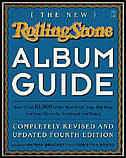| Working Drafts and Notes For: [The New] Rolling Stone Album Guide |
 |
Hank Williams
Old Version
| Wanderin' Around (Polydor, NA) | |
| Greatest Hits (Polydor, 1963) | |
| Beyond the Sunset (Polydor, 1963) | |
| The Very Best of Hank Williams (Polydor, 1963) | |
| Wait for the Light to Shine (Polydor, 1963) | |
| 24 Greatest Hits (Polydor, 1976) | |
| 24 Greatest Hits, Volume 2 (Polydor, 1977) | |
| Hank Williams Live at the Grand Ole Opry (MGM, 1976) | |
| 40 Greatest Hits (1978; Polydor, 1988) | |
| Rare Takes and Radio Cuts (Polydor, 1984) | |
| On the Air (Polydor, 1985) | |
| Hank Williams: I Ain't Got Nothin' But Time, December 1946-August 1947 (Polydor, 1985) | |
| Hank Williams: Lovesick Blues, August 1947-December 1948 (Polydor, 1985) | |
| Hank Williams: I'm So Lonesome I Could Cry, March 1949-August 1949 (Polydor, 1986) | |
| Hank Williams: Long Gone Lonesome Blues, August 1949-December 1950 (Polydor, 1987) | |
| Hank Williams: Hey, Good Lookin', December 1950-July 1951 (Polydor, 1987) | |
| Hank Williams: I Won't Be Home No More, June 1952-September 1952 (Polydor, 1987) | |
| Rare Demos First to Last (Country Music Foundation, 1990) | |
| The Original Singles Collection (Polydor, 1991) |
Born in Mount Olive, Alabama, in 1923, Hank Williams had a youth that coincided with the modern era of country music. By the time he made his first recordings in 1946, he'd absorbed styles ranging from Appalachian folk music to blues to honky tonk. By the time of his death in 1953, Williams, though not completely accepted by the country music establishment, had effected sweeping changes in country songwriting by personalizing his own material to a painful degree; and in the instrumental attack of his later sides, his music presaged the advent of rockabilly.
The focus, though, must remain clearly on the songs. Williams's music, though well played by his band the Drifting Cowboys with assistance in the studio from some of Nashville's top hands, wasn't notably innovative in structure or style. What Williams had in abundance was an ability to render his own travails in plainspoken lyrics that also spoke to the times and conditions his Southern audience knew well. There was both defiance and dignity in his approach, as well as a strong spiritual base that expressed itself in near-mystical terms, particularly on his many gospel recordings. Moreover, Williams embodied his songs to a degree country music hadn't seen before he showed up: his tumultuous marriage to Audrey Sheppard Guy was a classic love-hate affair, explicitly described in some of Williams's greatest songs ("Cold, Cold Heart," "I Can't Escape From You," "Your Cheatin' Heart").
Yet Williams spoke to an audience far beyond the bounds of country. A measure of his eloquence is in the number of cover versions of his songs that have been recorded over the years by artists spanning the popular music spectrum. In 1951 Tony Bennett had a Number One single with a cover of "Cold, Cold Heart"; in '51 and '52 Jo Stafford cut Top Ten singles on "Hey, Good Lookin'" and "Jambalaya"; and Williams himself had six Top Thirty singles between '49 and '53, one of the few country artists to enjoy such distinction at that time.
In recent years Williams's catalogue has been restored to respectability from its once-pathetic shambles. There's no longer any justification for owning the overdubbed versions of his classic songs found on 24 of Hank Williams' Greatest Hits and 24 Greatest Hits, Volume 2, when you can hear the tracks in their pure band format on other collections. Moreover, an ambitious reissue program undertaken in the mid-'80s by PolyGram has restored virtually everything Williams recorded, with a major helping hand provided by the Country Music Foundation's Rare Demos First to Last issue, which shows 24 songs in their earliest form performed by Williams accompanying himself on guitar (Rare Demos combines into one set recordings from two previous releases, Just Me and My Guitar and The First Recordings). An overview of the most commercial sides is available via the three-CD release, The Original Singles Collection, comprised of every single released during Williams's lifetime, and the excellent 40 Greatest Hits, mastered from the original mono tapes. A different sort of greatest hits perspective is provided by On the Air and Rare Takes and Radio Cuts. The former is a compilation of radio show appearances from 1949-1952, and features well-known songs such as "I'm So Lonesome I Could Cry" and "I Can't Help It (If I'm Still in Love With You)" along with minor gems such as "'Neath a Cold Gray Tomb of Stone" and "A Mansion on the Hill." In addition to the rare tracks (including a version of "Honky Tonkin'" from his second session for Sterling Records, pre-MGM), Rare Takes and Radio Cuts includes five radio performances that demonstrate the subtle changes Williams worked on his material over repeated performances.
Williams recorded many spiritual songs, and some of the best are collected on Wait for the Light to Shine. Two other releases, Beyond the Sunset and Wanderin' Around, are not spiritual albums by definition, but limn a man's spiritual journey; the latter, in songs such as "Nobody's Lonesome for Me," "Take These Chains From My Heart" and "You're Gonna Change (or I'm Gonna Leave)," is most explicitly about Williams's marriage. Ultimately, though, the ne plus ultra of Williams collections is Polydor's six-volume Hank Williams series presenting his MGM recordings in chronological order and original undubbed mono. -- D.M.